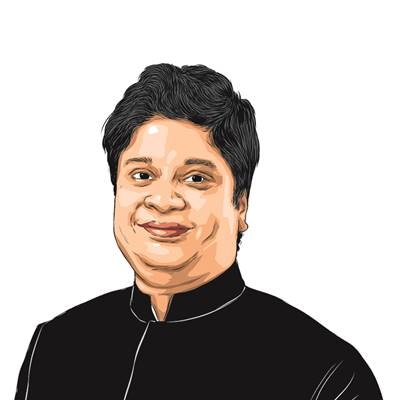Opinion By the people?
Lobbying by civil society for the CICs post is fraught with consequences
What ought to have been a rather mundane,routine appointment process for the now vacant post of Chief Information Commissioner has taken an interesting turn (not necessarily for the better) courtesy a motley civil society caucus. An eclectic group comprising of undoubtedly eminent citizens of India corporate leader Narayana Murthy,actor Aamir Khan,activist Arvind Kejriwal,yoga guru Baba Ramdev among others has written to the government strongly recommending the name of Kiran Bedi,the outspoken former cop,for the top job in the Central Information Commission. Some have also thrown an additional gauntlet to the government if it doesnt appoint Bedi,the prime minister must explain how,and why,its chosen candidate is better than Bedi for the job.
This intervention is peculiar,interfering and damaging for a number of reasons. Peculiar because one doesnt quite know what made a group of such diverse individuals agree on a single,and judging by her past record quite controversial,name for such an important job. The point is well taken that the right to information has been incrementally gained by a clamour form ordinary citizens outside of government,and therefore we the people have a unique stake in tracking the CICs post. However,is recommending candidates the right way to go about this? The general criteria/qualifications for appointment to the CIC are enshrined in the Right to Information Act in any case. By recommending just one person,someone who often polarises even larger civil societys opinion on a number of issues,this particular group of individuals has left itself open to well-justified criticism,of promoting vested interest,and a specific agenda,of their own making.
In doing so,they have hardly distinguished themselves from the government at least their own perception of how government operates. Presumably Messrs Murthy et al strongly believe that the government is incapable of making a fair and appropriate decision. Like many other cynics,they perhaps believe that the government gives short shrift to merit in most important appointments. While there may indeed be numerous instances of such decision-making,it would be wrong to say that the government never makes appointments based on competence and merit. It does. The outgoing CIC,for example,had a very good record and was appointed by the government.
In fact,in a democratic system of government,the electorate grants their chosen government the authority to make key appointments. Civil society cannot suddenly claim the right to have an equal say in the appointment of government officials. Thats mixing up roles and interfering outside ones domain. After all,we dont want the government to recommend names for company CEOs or heads of prominent NGOs. Of course,civil society has every right to hold those appointed to important offices to account. And civil society groups have done a good job of this over the years. The move to make it compulsory for all candidates in elections to declare their assets was a civil society initiative. The move to make judges disclose their assets was also a civil society initiative to begin with. And thats the crux of civil societys role strengthen institutional checks and balances so that the precise profile of particular individuals matters less.
Unfortunately,in India,there is a consistent bias in favour of the individual in preference to the institution or office that the person occupies. Governments are guilty of this,even if they do choose competent individuals often enough. If
civil society too begins to play in favour of individuals rather than institutions,then the cause of accountability and institutional strength will stand deeply damaged.
The best example of institutional strength within the larger set up of the government is the Election Commission of India. For an institution always manned by ex-bureaucrats,many of them chosen for their proximity to the government of the day,it has a remarkably good reputation for being an impartial authority which conducts the worlds largest democratic exercise in a free and fair manner. It is a reputation which resonates with the people of India at large,and almost all observers of democratic processes anywhere in the world.
Some will say that it only acquired its independence courtesy an individual T.N. Seshan. But that would be giving too much credit to one man. Remember that before Seshan,politics and therefore elections in India were largely unipolar,and it is only at around the time that he became chief election commissioner,did the disintegration of the Congress system and the first signs of a contested multiparty
system begin. Someone else in Seshans place may have asserted neutrality and independence too,given that the rules and laws which protected the commission were in place in any case. Remember that there was a free and fair election in 1977 too when the Congress first lost power at the Centre.
Even if one gives Seshan some credit for asserting the Commissions independence,one mustnt forget that the assertion lasted beyond the somewhat megalomaniacal Seshans term in office. The institutional strength enabled the commission to come out unscathed from M.S. Gills questionable decision to join party politics not long after leaving office as CEC. Gill may have lost credibility but the commission did not. Similarly,despite the many allegations of political bias thrown at then election commissioner (and now CEC) Navin Chawla,the commission never lost its wider credibility. The case of the election commission is a classic case of the quality of an institution taking precedence over individuals who have occupied positions in it at different points of time.
And that really is the position a body like the Information Commission needs to aspire to. Even if the government makes inappropriate choices for the top jobs on occasion,the institution should have the checks already enshrined in the legislation,and enforced by pressure from civil society to remain strong and credible despite a less than satisfactory egg or two.
By joining the appointments game,however,civil society aspires to become a parallel centre of power,not a custodian of accountability. Thats bad for the health of the system.
dhiraj.nayyar@expressindia.com


